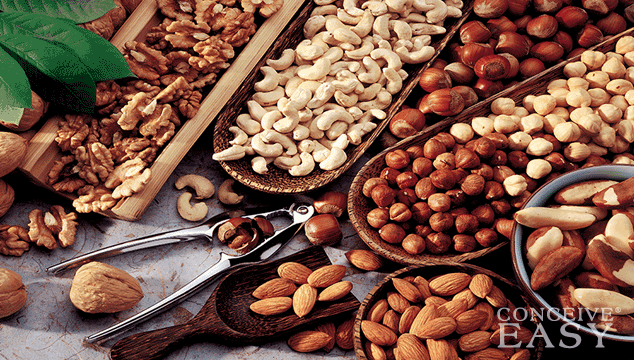![]() The information provided by our expert should not constitute a diagnosis of your condition. Always consult a medical practitioner or healthcare provider for a formal diagnosis. By making use of this content, you agree that ConceiveEasy and the expert assume no liability.
The information provided by our expert should not constitute a diagnosis of your condition. Always consult a medical practitioner or healthcare provider for a formal diagnosis. By making use of this content, you agree that ConceiveEasy and the expert assume no liability.
When you are pregnant, there are lots of things you can and can’t do. Many of these items revolve around the things you can and cannot eat or consume. One concern that parents have for their children is that they will develop an allergy because of the things the mother eats while she is pregnant. Claim Your 20 Free Pregnancy Tests – Click Here
One major allergy that children tend to develop is an allergy to peanuts. Because of this, many parents are worried that if the mother eats peanuts while pregnant, the baby will be more likely to develop a peanut allergy. However, studies show that this isn’t necessarily the case.

Today, it is estimated that one in thirteen kids have a food allergy. About 40% of those kids have a life-threatening reaction to certain foods. This number has actually increased over the years. From 1997 to 2010, the number of kids with a peanut or tree nut allergy has more than tripled.
This information resulted in the American Academy of Pediatrics to advise women to avoid eating these types of foods when they were pregnant. It also advised that women should keep them away from their children until they were at least three. But, once studies were completed after this decision, the results changed dramatically.

The study that made this determination occurred 11,000 mothers and their children. They were followed from birth through adolescence. It determined that women who actually eat nuts while they are pregnant and give them to their young children actually make it easier for their kids to avoid a nut allergy.
Now, women are advised to not avoid these types of foods while they are pregnant and to continue to give them to their young children. However, there are still times when you want to be careful following this advice.
For example, if your family has a history of nut allergies, it is important to be very careful about what you eat and what you give to your young children. When nut allergies tend to run in the family, your kids will have a greater chance of developing one than they would without this history. This is especially true if the mother has an allergy to nuts. Allergies that the mother has are typically transferred to the baby as well.
Regardless of any studies or history, it is always best to discuss your diet with your doctor. Your doctor will be able to tell you exactly what you should and should not be eating in order to keep you and the baby safe while you are pregnant.










Comments